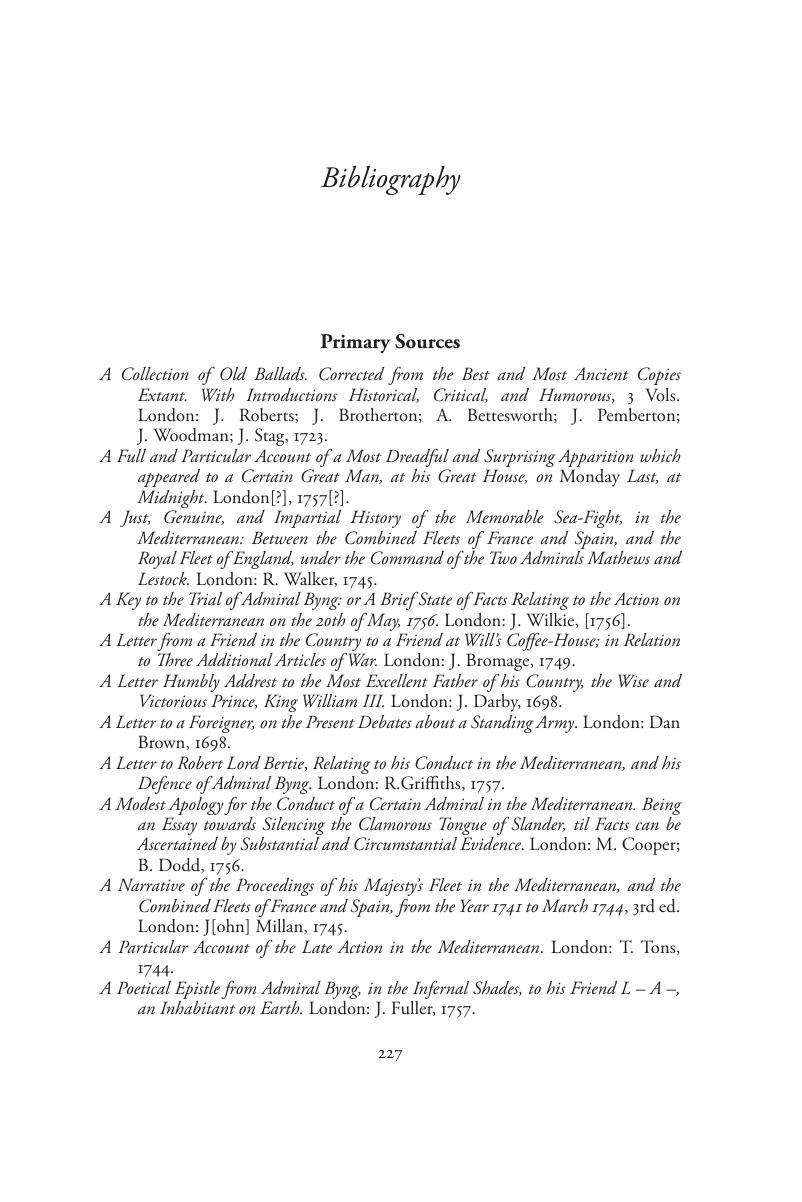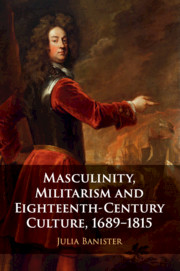Book contents
- Masculinity, Militarism and Eighteenth-Century Culture, 1689–1815
- Masculinity, Militarism and Eighteenth-Century Culture, 1689–1815
- Copyright page
- Contents
- Acknowledgments
- Introduction
- Chapter 1 The Military Man and Augustan Anxieties
- Chapter 2 Performing Military Professionalism
- Chapter 3 The New Old Military Hero
- Chapter 4 The Military Man and the Return to the Gothic Past
- Chapter 5 The Military Man and the Culture of Sensibility
- Chapter 6 The Making of Military Celebrity
- Chapter 7 (De)Romanticizing Military Heroism
- Conclusion
- Bibliography
- Index
- References
Bibliography
Published online by Cambridge University Press: 13 April 2018
- Masculinity, Militarism and Eighteenth-Century Culture, 1689–1815
- Masculinity, Militarism and Eighteenth-Century Culture, 1689–1815
- Copyright page
- Contents
- Acknowledgments
- Introduction
- Chapter 1 The Military Man and Augustan Anxieties
- Chapter 2 Performing Military Professionalism
- Chapter 3 The New Old Military Hero
- Chapter 4 The Military Man and the Return to the Gothic Past
- Chapter 5 The Military Man and the Culture of Sensibility
- Chapter 6 The Making of Military Celebrity
- Chapter 7 (De)Romanticizing Military Heroism
- Conclusion
- Bibliography
- Index
- References
Summary

- Type
- Chapter
- Information
- Publisher: Cambridge University PressPrint publication year: 2018



